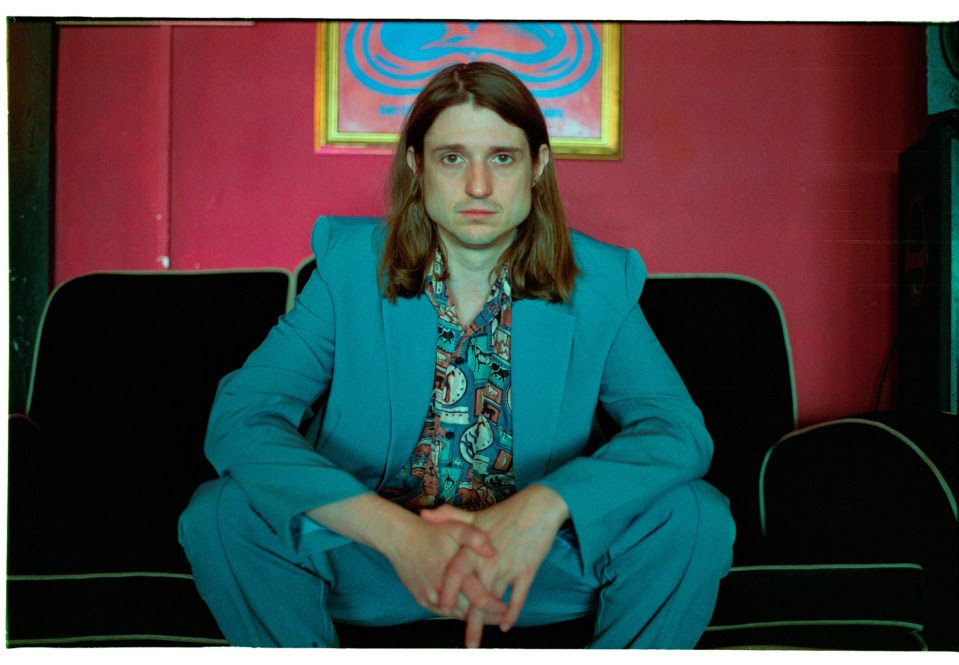Quick on the heels of the release of a string of acerbic art pop singles, today DC Gore announces that his synth-layered, politically prescient debut album, All These Things, will be released on 29th July via Domino. Alongside the announce comes the anthemic, self-lacerating love song, “I Like You”.
“I Like You” is a romantical synth-pop banger featuring a beautiful colliery brass band intro. Mixed by Alexis Smith (Speedy Underground), mastered by Heba Kadry (Cate Le Bon, Lucy Dacus) and recorded with former bandmate Lawrence Hart, its scintillating lyrics and uncanny cultural references set against dance-floor beats is classic DC Gore. “Some things I like, some things I’ve been told to. Like an anti ‘losing my edge’ – for someone on the periphery.”
Listen to “I Like You” here.
Inspired by William Golding’s post-war debut novel Lord of the Flies, the Niall Trask (Fat White Family, Nadine Shah, Working Men’s Club) directed video features Gore as the Ralph of the pack, leading a dishevelled bunch of brass-playing children as they pick up the remains of their plane that crashed into Pett Level beach, East Sussex.
“A few years ago I came across Tish Murtha’s photos of juvenile jazz bands in 1970s Newcastle and just fell in love with them,” Gore says. “That the joy and release of music can fulfil such a positive societal function reminded me of the hope and longing for grace at the heart of the song, that even with all the cynicism there is something magical there too.”
Following the dissolution of south London trio Little Cub, Gore has remodelled and reimagined the band’s electronic synth-pop within his solo work to incorporate additional acoustic instrumentation which makes for a more textured and temperate sound. All These Things expertly layers fantastically dystopian imagery against twinkling tapestries of electronics and propulsive beats. It’s a shift akin to the Pet Shop Boys’ development between Introspective and Behaviour: from bright, dancefloor-focused pop to melancholic mini-symphonies.
“All These Things is a bookend to a torrid period in my life,” Gore comments. “There are so many themes in there of failure and frustration (personal and political), shame and longing, but in the end, there is a hope to it. All these things that feel so all-consuming at the time become quotidian in the wake of a global pandemic.”
As inspired by the unvarnished portraiture of Martin Parr as he is Ballardian grotesquerie – and by the seedy witticisms of Jarvis Cocker and arch art-pop commentary of Neil Tennant, Gore’s music sits proudly within a rich tradition of distinctively British disrupters. Skewering notions of national identity with a vivid mix of pin-sharp satire in an expansive palette of synthesising new wave art-rock, Gore effortlessly creates songs that are as ingeniously calculated as they are dance-inducing. Highlights include the propulsive, tragicomic “Nietzsche On The Beach”, the melancholic dancefloor-focused “California” and “Bodies” featuring plaintive piano chords and distorted guitar.
“It’s a very real possibility that we might be living in the end times, you know? This might be how we’re going to go out. And we’ve got this incredible opportunity to experience life, so why not make the most of it?”








